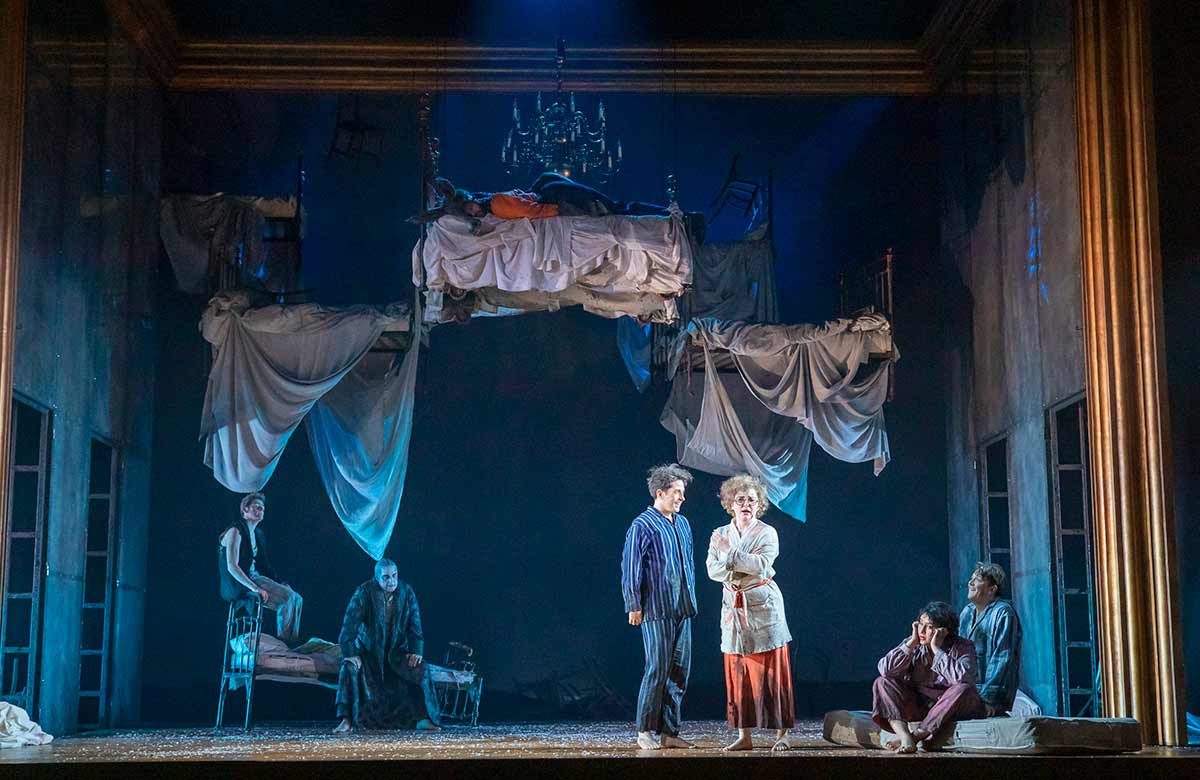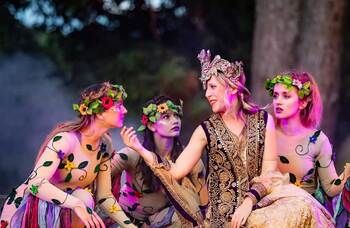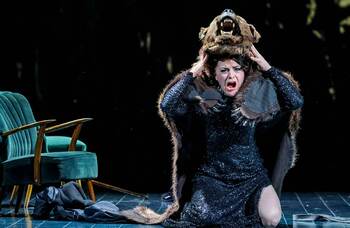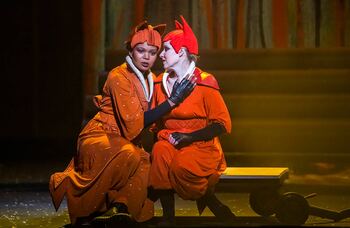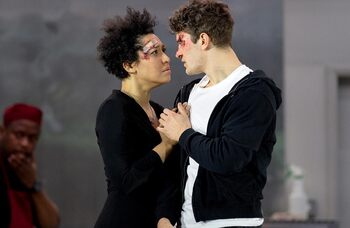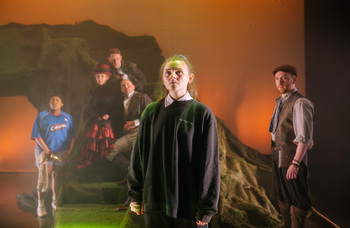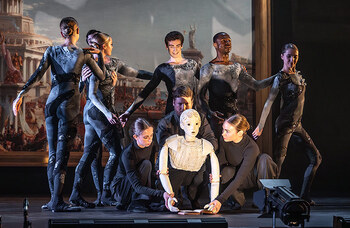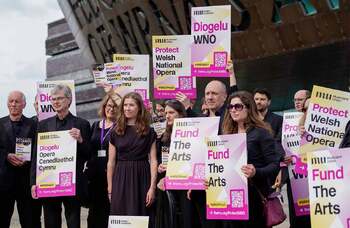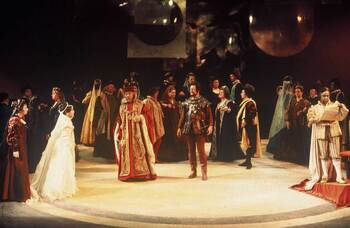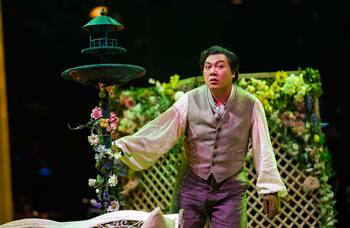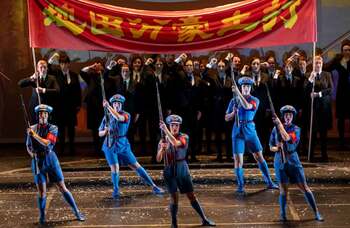A Midsummer Night’s Dream review
Scottish Opera’s surefooted and finely integrated staging of Benjamin Britten
Dominic Hill’s Scottish Opera production of Britten’s A Midsummer Night’s Dream was due to be staged in March 2020, but with just a couple of weeks to go, lockdown intervened – and the show was pulled.
Two years on, it is heartening to see this major collaboration between the artistic director of the Citizens Theatre and the forces of Scotland’s Glasgow-based opera company – led by its extraordinarily accomplished music director Stuart Stratford – finally come to fruition.
As in the play, three strands run throughout: the four lost and mismatched lovers wandering around the Athenian woods; the rude mechanicals rehearsing their ridiculous play; and the often invisible but nocturnally all-powerful fairy kingdom.
Each sharply differentiated, the groups are memorably brought together for their collisions and interactions in a finely integrated production that precisely balances their diverse individualities.
The groups subdivide further – Jonathan McGovern’s forthright Demetrius, Charlie Drummond’s determined Helena, Lea Shaw’s vulnerable Hermia and Elgan Llyr Thomas’ bold Lysander each make a clear impact as a distinctive entity while communally charting their absurdly convoluted emotional round-dance with conviction as well as neatness.
Led by David Shipley’s vividly sung and expertly crafted Bottom, the theatrical amateurs don’t miss a trick. As represented by Lawrence Zazzo’s sweet-voiced yet sinister Oberon, the fairy crew exudes a malign enchantment, with Catriona Hewitson’s high and infinitely delicate singing as his estranged consort Tytania a source of power in its own right.
Endlessly hyperactive, whether cavorting on the ground or launching into the air, Michael Guest sets up Puck’s disastrous interventions with cockily confident aplomb – even when they go disastrously wrong
The half-male, half-female children’s fairy troupe provides pinpoint accurate singing and presents fantastical, often singular personalities – some with more than a hint of St Trinian’s about them.
In this circa 1920 setting, Lysander and Demetrius are military men under the command of Jonathan Lemalu’s amiable Theseus, Annie Reilly’s snobbish Hippolyta his wife looking down on the lower orders.
As in the much travelled Robert Carsen production, beds feature prominently. Yet whatever the scene or ambience, designer Tom Piper comes up with an appropriate and regularly mesmerising set of visuals, and the whole is lit with verve and variety by Lizzie Powell. Helping to maintain narrative flow from scene to scene, Kally Lloyd-Jones’ striking movement is skilfully realised by the entire company.
Centred on the changeling boy over whom the fairy royals argue, Rachael Canning’s puppetry adds further mysterious resonances, and courtesy of John Conway there are some champion illusional tricks on offer.
However good the individual elements, it is their organic amalgamation under Hill’s surefooted direction and Stratford’s precise yet visionary conducting that gives the entire show a sense of everyone and everything working together. The result has the makings of a Scottish Opera classic.
More Reviews
More about this organisation
More Reviews
Recommended for you
Most Read
Across The Stage this weekYour subscription helps ensure our journalism can continue
Invest in The Stage today with a subscription starting at just £7.99
